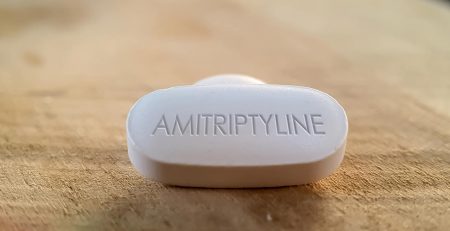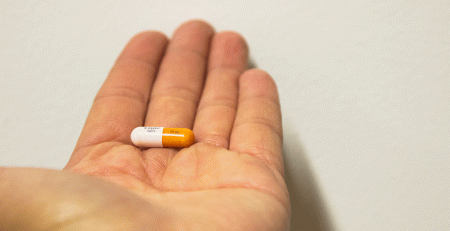The treatment of pain and other disorders has resulted in an increased use of drugs such as gabapentin. Clarifying the crucial topic of gabapentin interactions is essential as patients and medical professionals negotiate the complexities of treatment. It is critical to understand how gabapentin may interact with other drugs to guarantee the security and effectiveness of the recommended dosage schedules. The specialists at our Palm Beach County rehab explore the complex world of gabapentin interactions below, highlighting important drugs and substances that need to be used cautiously to maximize each patient’s therapeutic results and minimize risks.
Questions about our Programs?
Our admissions coordinators are available 24/7 to answer any questions you may have as you consider whether treatment at Banyan is right for you or your loved one.
What Is Gabapentin?
Gabapentin is a medication that belongs to the anticonvulsant drug class. It was first created to treat epileptic seizures, but it is now used to treat several different conditions. Gabapentin is particularly known for its ability to effectively relieve neuropathic pain—a form of pain resulting from injury to the nerves.
The gabapentin drug works by reducing the release of excitatory neurotransmitters, inhibiting the activity of certain neurotransmitters in the brain to produce its therapeutic effects. Because of this mechanism, gabapentin can be used to treat conditions such as restless legs syndrome and specific types of nerve-related pain in addition to epilepsy and neuropathic pain. Furthermore, it is occasionally prescribed off-label for ailments like migraines and anxiety disorders.
Gabapentin is often prescribed alongside other anticonvulsants like phenytoin, valproic acid, and phenobarbital to manage various epilepsy disorders, and it generally does not exhibit significant interactions with these medications. However, it is important to note that gabapentin and pregabalin (Lyrica), which are both used to treat similar conditions by mimicking the same neurotransmitter in the brain, should not be used concurrently. This is because their combined use can lead to redundant therapy and increased side effects. Additionally, combining gabapentin with benzodiazepines such as Valium (diazepam), which are also central nervous system depressants, can enhance sedative effects. This combination may be employed under careful medical supervision in certain cases where multiple drugs are needed to control seizures effectively. Always discuss potential risks and benefits with a healthcare provider when taking gabapentin with other anticonvulsants.
Dangerous Gabapentin Drug Interactions
Gabapentin, a versatile medication with diverse applications, can interact with various substances, potentially leading to adverse effects. It is crucial for individuals using gabapentin to be aware of these interactions to ensure the safety and efficacy of their treatment. It is imperative for healthcare professionals and patients alike to thoroughly discuss and understand these potential gabapentin interactions to navigate treatment regimens safely.
Below are common gabapentin interactions and their associated effects:
- Losartan (angiotensin II receptor blocker): The combination of gabapentin and losartan may increase the risk of dizziness and drowsiness.
- Ethacrynic acid (diuretic): Gabapentin may decrease the effectiveness of ethacrynic acid.
- Caffeine: High doses of caffeine may increase the side effects of gabapentin, such as dizziness and drowsiness.
- Phenytoin (anticonvulsant): Gabapentin may increase the concentration of phenytoin, potentially leading to toxicity.
- Mefloquine (antimalarial): Mefloquine may increase the risk of seizures when combined with gabapentin.
- Magnesium oxide (mineral supplement): Taking magnesium oxide with gabapentin may reduce the absorption of gabapentin.
- Cimetidine (histamine H2 receptor antagonist): Cimetidine may increase the concentration of gabapentin in the blood.
- Naproxen (nonsteroidal anti-inflammatory drug – NSAID): NSAIDs, including naproxen, may increase the risk of certain side effects when taken with gabapentin.
- Sevelamer (phosphate binder): Gabapentin may decrease the absorption of sevelamer, potentially reducing its effectiveness.
- Painkillers (opioids): Combining gabapentin with opioids may increase the risk of central nervous system depression, leading to respiratory distress, enhanced sedation, and greater potential for abuse.
- Antidepressants: The combination of gabapentin with certain antidepressants may increase the risk of serotonin syndrome, a potentially life-threatening condition.
- Antipsychotic medications: Combining gabapentin with antipsychotic medications may increase the risk of dizziness, drowsiness, and impaired concentration.
You should disclose all of the medications you take to your healthcare provider, including over-the-counter medications, supplements, and herbal products. Based on your medical history and unique situation, they can offer tailored advice. Never change your medication schedule without first talking to a healthcare provider.
Gabapentin Interactions With Alcohol
In addition to avoiding certain drugs, individuals who take gabapentin should also avoid drinking during treatment. A gabapentin and alcohol interaction can have dangerous side effects, which is why it’s generally discouraged to drink while taking the medication. Both substances act as central nervous system depressants, and together, they can increase an individual’s risk of sedation, dizziness, and impaired cognitive function.
Below are some additional side effects of gabapentin and alcohol to consider:
- Increased central nervous system depression: Alcohol and gabapentin have the potential to sedate the central nervous system. When combined, they might have a synergistic or additive effect that makes you feel more sleepy and impaired.
- Cognitive impairment: These two substances together may affect cognitive function, such as coordination and focus. This may make falls and accidents more likely.
- Dizziness and drowsiness: Drinking while on gabapentin can make people drowsy and dizzy, as both medications can produce these effects individually.
- Increased risk of overdose: Alcohol and gabapentin together may make respiratory depression more likely. This is especially dangerous for people who have heart or breathing problems.
- Gastrointestinal side effects: Combining the two substances may increase the risk of gastrointestinal adverse effects like nausea and vomiting.
Everyone responds differently to medication, and alcohol and the degree of interaction can be influenced by a variety of factors, including the dosage of gabapentin, the quantity of alcohol consumed, and individual health conditions.
It’s important to speak with your doctor before taking gabapentin with alcohol or altering any other aspect of your medication schedule. They can help you understand the possible risks and benefits and offer tailored advice based on your medical history. You should also always be honest about any worries you may have about alcohol consumption with your healthcare professional to receive advice and assistance.
Can I Take Any Pain Meds With Gabapentin?
Generally, no, you cannot take pain medications with gabapentin. However, this depends on the regimen created by your healthcare provider. Unless directed to by your doctor, you should not mix painkillers like opioids with gabapentin, as this may increase the risk of adverse effects like central nervous system depression, leading to drowsiness, dizziness, and impaired cognitive function.
Additionally, if you are consulting with a doctor about taking gabapentin, be sure to tell them about any medications you’re currently taking. This allows them to either provide you with a safe dose or avoid prescribing a medication that could have potentially dangerous interactions.
Can I Take Gabapentin With Ibuprofen?
Combining gabapentin and ibuprofen may be done under the guidance of a medical professional but should not be done otherwise. It’s important to consult with your doctor before taking ibuprofen with gabapentin, as both medications can impact the central nervous system as well as the gastrointestinal system. Some possible side effects to consider can include drowsiness, dizziness, stomach irritation and bleeding, impaired kidney function, and liver problems.
As previously mentioned, it’s important to take prescription drugs exactly as directed by your doctor and to let them know about all of the medications you take, including over-the-counter medications, herbal products, and supplements. This enables your healthcare provider to decide on your treatment plan with knowledge, minimizing risks and accounting for possible interactions.
Get a Free Insurance Verification Today!
"*" indicates required fields
Get Help for Prescription Drug Abuse
Despite the various drug interactions with gabapentin out there, many people still misuse this drug. If this is the case for you or a loved one, know that help is available. Our BHOPB detox center offers a wide range of services to aid individuals in their recovery from prescription drug misuse, including detox and psychotherapy.













